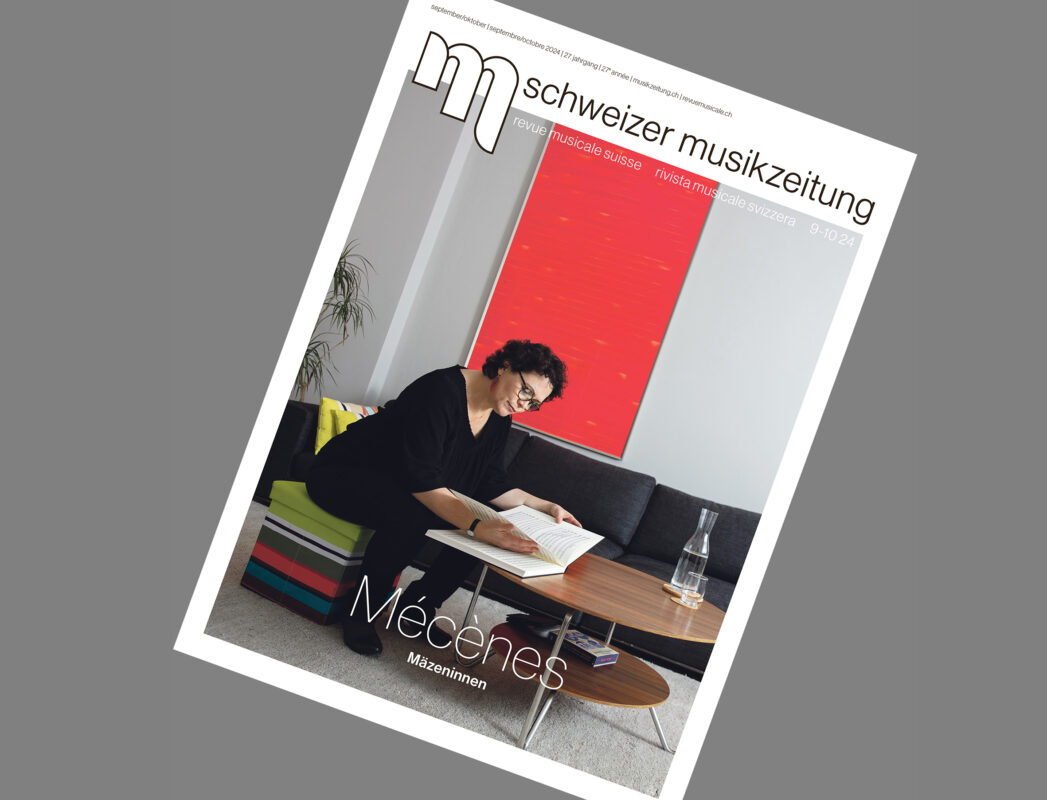Freedom - a new look at the plural
The second version of Patrick Frank's theoretical opera "Freiheit - die eutopische Gesellschaft" will be performed at Zurich's Gessnerallee on February 13.


The second version of Patrick Frank's theoretical opera "Freiheit - die eutopische Gesellschaft" will be performed at Zurich's Gessnerallee on February 13.
If you visit Patrick Frank's website (www.patrickfrank.de), you get first impressions: It's obviously not just about a composer, but also about a cultural scientist. Frank's medium is music, and he also runs the only analog photo booth in Switzerland in Zurich, gives lectures on social issues, makes ironic advertising clips, but also conceives comprehensive music theater and concert installations such as Freedom - the eutopian society.
The complex is subtitled "Curatorial composition and theoretical opera". Patrick Frank says that it is a "conception of different disciplines under one roof", and also something like a "cultural diagnosis in the form of a happening, a performance, a concert symposium". Terms do not always get to the heart of the matter. Especially not today, when it is no longer clear what left-wing or right-wing attitudes are or what is meant by "freedom". Can the eloquent composer and cultural scientist help? For Frank, freedom is initially a rather ambivalent category - and obviously a very topical one: see the influx of refugees, see the rise of right-wing populism, see the perversion of the supposed panacea of democracy into anti-democracy in Switzerland.
The fall of the Berlin Wall as a high point
Frank is not naive. He knows that his art can neither trigger revolutions nor encourage resistance. But it can do one thing: It can diagnose social conditions. In the first act, says Frank, "we assume that freedom was a utopia and that people fought for freedom. There were numerous freedom revolutions in the 19th century. Freedom was not yet a social reality. We therefore examined the question of how Western culture interpreted and gradually realized the value of 'freedom'. The big event that finally made the supposed realization of freedom effective in the mass media was the fall of the Berlin Wall and the fall of the ideological opponent 'communism'."
Such theses are reminiscent of the book The end of the story by the American political scientist Francis Fukuyama. Frank, however, creates particularly memorable constellations in his theory-heavy art. David Hasselhoff sings in the video Looking for Freedom at the fallen Berlin Wall, with a speaker recapitulating the events of September 11, preceded by reflections on the nature of postmodernism. The complexity and contradictory nature of the theme is reflected in the character of a collective work with contributions from other composers and philosophers. "It was important to me," says Frank, "to confront different minds with the subject of freedom. What ultimately resulted was a surprise for me and a world premiere. That's exactly what I intended, as the subject of 'freedom' is far from over for me too."
With psychoanalysis and cultural criticism
Consequently, Frank's project is not yet finished. With a predominantly positive response Freedom - the eutopian society was performed in a first version as part of the Donaueschingen Music Days in October 2015. The complex will be performed in a second version with a different cast and dramaturgy at the Gessnerallee Zurich on February 13. In addition to the composers Martin Schüttler and Trond Reinholdtsen, Slavoj Žižek was also invited to take part. He is regarded as a controversial philosopher who can be classified as either a psychoanalyst or a cultural critic. Žižek is a good fit for this eventful evening, which should definitely have one effect: He softens many a too-often knotted brain coil.








